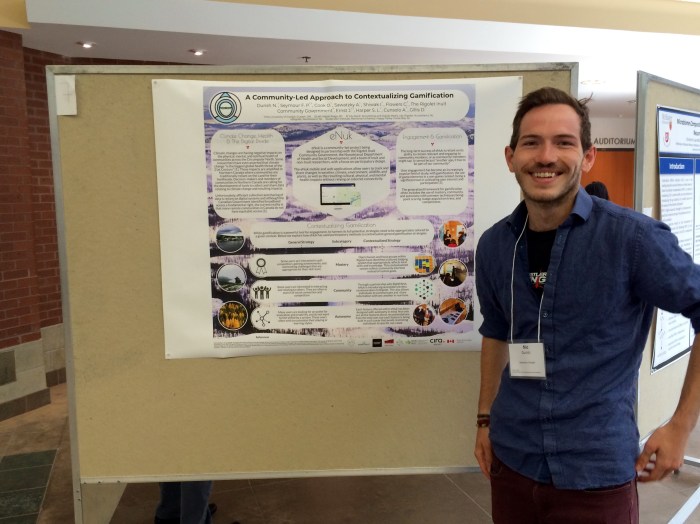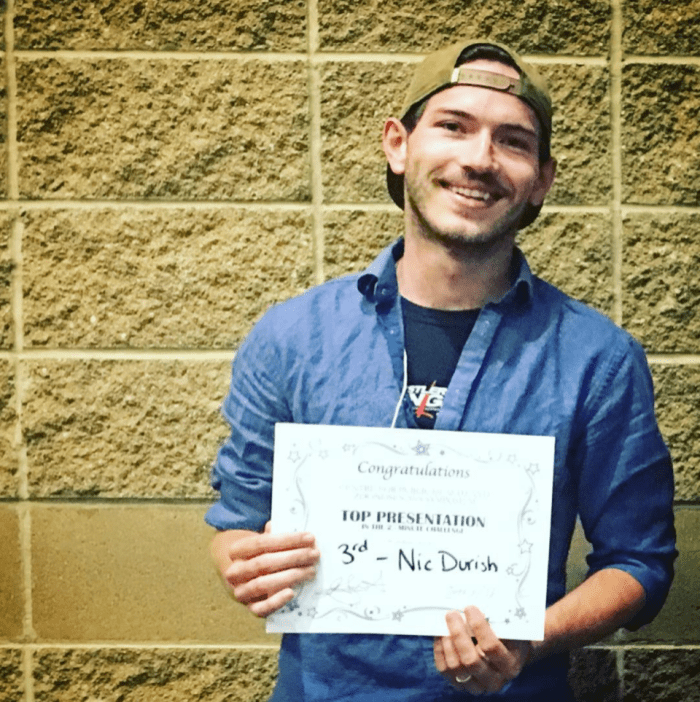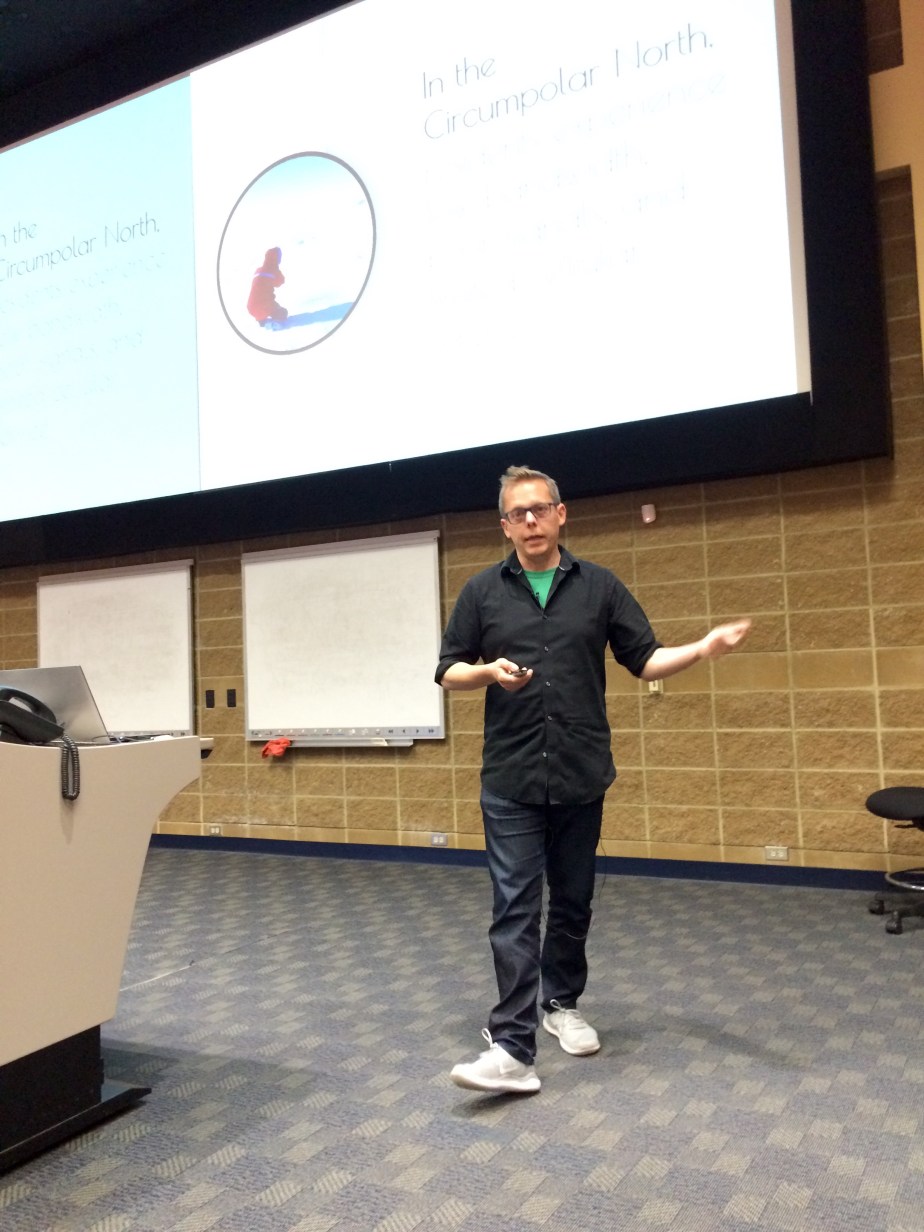Written by Isaac Bell The Centre for Public Health and Zoonoses (CPHAZ) held their 2018 symposium in Rozanski Hall at the University of Guelph this past Friday (June 8th). The keynote speaker at the symposium was Dr. Craig Stephen, a professor at the University of Saskatchewan and executive director of the Canadian Wildlife Health Cooperative. Harper Lab collaborators Dr. Dan Gillis and MSc student Nic Durish, from the school of computer science, were also featured presenters.
Dr. Stephen’s talk, entitled ‘Can OneHealth Save the World?’,set the tone for the day’s agenda, with themes of systems-thinking and transdisciplinarity continuously emerging across a range of topics. He challenged us to reconsider our perceptions of health by emphasizing the interplay of humans and the so-called natural environment. For instance, should the health of a salmon population be defined as simply having enough fish for humans to kill at a steady rate? Salmon provide numerous ecosystem services - the effects of which undoubtedly benefit humans - so ascribing a definition of health based on short-term economic returns may prove harmful in the not-so-long term.
In the following session, Dr. Gillis spoke to the ‘Potential Health Aspects of the Digital Divide’. Focusing on Rigolet, an Inuit community in Nunatsiavut, Labrador, Gillis highlighted how dialup-level internet speeds and the absence of cellphone service can serve as a barrier to accessing information, collecting data, and addressing health concerns. Rigolet is representative of much of Inuit Nunangat in this respect, where the digital divide is yet another aspect in which primarily Indigenous communities face continued disparities when compared to national standards. In response, Gillis’ research is undertaking a two-step approach: the first step is to quantify the extent of the digital divide using strategically placed Raspberry Pi’s (essentially mini computers) to measure upload and download speeds. The second step is to connect Northern communities to the internet using a technology called RightMesh (www.rightmesh.io). An immediate benefit of this initiative would be, for example, the ability for residents to deposit cheques via their mobile phones, as opposed to paying a deposit fee at the local grocery store.
Nic Durish, a masters student with Dr. Gillis, presented a poster on ‘A Community-Led Approach to Contextualizing Gamification’. This work is centered around the eNuk program (www.enuk.eco), whose “mobile and web applications allow users to track and share changes in weather, climate, environment, wildlife, and plants, as well as the resulting cultural, physical, and mental health impacts”[1]. eNuk, while still in the development phase, is being piloted in Rigolet led by local researchers Inez Shiwak and Charlie Flowers, alongside Ashlee Cunsolo, Sherilee Harper, and Dan Gillis, and its usage will be facilitated by the RightMesh network. After the lunch break, Nic participated in the 2-minute student challenge, and delivered an excellent speech to win third place (and $100!) out of all the contestants. Congrats to Nic and Dr. Gillis, and thanks to the CPHAZ organizers for administering yet another successful symposium!
To view all of the conference presentations, click here.
References:
[1]Durish, N. et al. A Community-Led Approach to Contextualizing Gamification. Poster presented at: 3rd CPHAZ Symposium; 2018 Jun 8; Guelph, Ontario.


